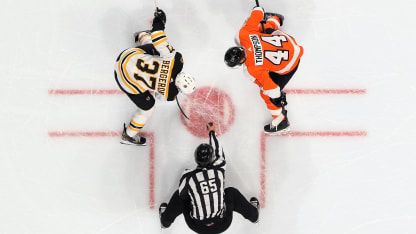Bettman, NHL focus on safety, integrity in Return to Play Plan
Testing, competition covered in 'extraordinary and unprecedented times'

© Len Redkoles/Getty Images
Return to Play Plan for 2019-20 NHL Season
Gary Bettman on NHL Tonight
Testing, competition covered in 'extraordinary and unprecedented times'

© Len Redkoles/Getty Images
Return to Play Plan for 2019-20 NHL Season
Gary Bettman on NHL Tonight